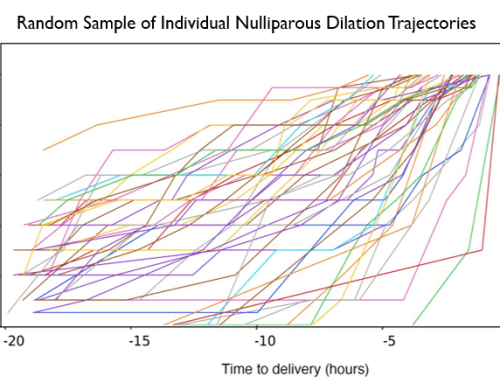 In The myths and physiology surrounding intrapartum decelerations: the critical role of the peripheral chemoreflex published in the Journal of Physiology, Lear et al have written a highly readable and methodical analysis of current evidence about the mechanisms of fetal heart rate decelerations. This is a must read for anyone seriously using fetal monitoring. He challenges long held tenets and presents a simplified coherent approach to the interpretation of heart rate monitoring. Here are two excerpts that may compel you to read further:
In The myths and physiology surrounding intrapartum decelerations: the critical role of the peripheral chemoreflex published in the Journal of Physiology, Lear et al have written a highly readable and methodical analysis of current evidence about the mechanisms of fetal heart rate decelerations. This is a must read for anyone seriously using fetal monitoring. He challenges long held tenets and presents a simplified coherent approach to the interpretation of heart rate monitoring. Here are two excerpts that may compel you to read further:
“… Despite multiple detailed analyses, there is no consistent FHR marker of fetal compromise …”
“… We believe that it is better to focus on the frequency, depth and total duration of decelerations during labor rather than on timing, shape or supposed aetiology of the specific deceleration.”
In an article published recently in the American Journal of Obstetrics & Gynecology titled Triggers, bundles, protocols, and checklists — what every maternal care provider needs to know, Arora et al define and provide examples of various methods to standardize and streamline clinical care and summarize the evidence supporting their association with improved outcomes. Many examples are provided for obstetrical issues such as hemorrhage, hypertension, oxytocin usage or preop preparation. With burgeoning evidence from diverse medical and non-medical domains, the question is no longer “Do these methods work?“, but rather “How can we get wider adoption and sustain compliance?” In short, how do we actually change established clinical beliefs and behaviors? This article is less informative on these practical issues.
 There is abundant data about effective ways to change behavior. In short, behaviors will not change without aligning a critical mass of influential factors. Determination and good intentions alone are insufficient and depending upon them alone is destined to fail. To supplement this review of available obstetrical safety packages we strongly recommend the book- Influencer: The New Science of Leading Change, Second Edition by David Maxfield, Ron McMillan, Al Switzler. (Click here to see a summary of this excellent work)
There is abundant data about effective ways to change behavior. In short, behaviors will not change without aligning a critical mass of influential factors. Determination and good intentions alone are insufficient and depending upon them alone is destined to fail. To supplement this review of available obstetrical safety packages we strongly recommend the book- Influencer: The New Science of Leading Change, Second Edition by David Maxfield, Ron McMillan, Al Switzler. (Click here to see a summary of this excellent work)








